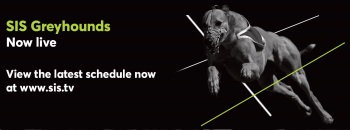1947 A survey reveals that the average price paid for a sapling at Aldridge’s sales is 62gns. That would represent a figure of around £2,600.
1978 Five go to traps for the St Mungo Cup but only three finish. First home is Frank Baldwin’s 4-7f All Wit. Second and third favourites Bubbling Away and Kickham Inn do not complete the course.
1970 Cameo Lawrence, bred and reared in a South London back garden is an 8-1 winner of the Gold Collar. He is the third winner in four years for local trainer Jack Smith following Stylish Lad (’67) and Surprising Fella (’69).

1993 Trainer Ken Linzell and the Romford management are each fined £500 after Puppy Oaks winner Gailys Magic ran in an A5 race instead of her kennelmate Bit Of Problem. Linzell had chosen to swap the racing kennels of the two bitches but had not requested permission to do so. Local layer Mel Attreed reported bets of £700-£200 and £3,000-£1,000 about the winner.
1958 GRA’s senior vet James Bateman, who pioneered the successful fitting of a plastic scaphoid bone in Stamford Bridge grader Hare Spy, is awarded the 1958 Victory Medal by the Royal College of Veterinary Surgeons.
1947 Top lot at Aldridge Sales is a brood bitch. Former open racer Milk Chocolate is sold in whelp to Wireless Delight for 280gns (index linked to roughly £11,730).
1975 Three years after the latest theft of a dog engaged in the English Derby, GRA have extended terms of conditions of the race to include: “the company will not in any circumstance be responsible for the illness of, disease contracted by, accident or damage to, death of loss of any greyhound whilst in the custody of the company, and however the same be caused, whether by negligence of employees of the company, or otherwise.”
1958 Jerrys Special returns to contest the first round of the Gold Cup over 700 yards at Wembley. The Paddy Keane trained runner has spent the previous two months in Ireland where he won two major coursing events, the Irish Cup and the International.
1993 Wimbledon hold a stewards inquiry into a winner of a Derby heat. Senior racing manager Bob Rowe is unhappy at the performance of Ger McKenna’s Moral Right who won his heat in 28.95, six days after clocking 29.76 in a trial. Local layer Tony Morris laid the dog to lose £7,600 at 5-2 and 9-4 but still won £3,300 on the race. The winner was returned at 11-4. The following night Fraser Black’s Resilient Rebel finds 58 spots on trial form after being backed from 5-1 to 5-4f.
1977 Nine of Ireland’s tracks are closed due to industrial action by staff over pay. The tracks remain closed for five weeks.
1981 A Hackney owner successfully sues a vet who failed to diagnose a broken hock, he had said the dog had a hind muscle injury. However, separate diagnoses from Paddy Sweeney and David Poulter confirmed the error. The claim including damages, loss of earnings, personal suffering and court costs amounted to £1,062.
1985 Following George Curtis’ decision not to run Ballyregan Bob in the event, Fearless Champ is the ante post favourite for the first English Derby to be held at Wimbledon. Geoff De Mulder’s brindle, is a 10-1 chance. Hong Kong Mike is 12-1 with Daleys Gold next in at 14s.
1947 Romford’s security guard has selected a “huge brute” new guard dog from Battersea Dogs Home. He is described as “85% Alsation, much of the rest, Wolf Hound, and remaining gap in his pedigree. . . .possibly elephant” He is named Peter The Great.
1973 The NGRC announce losses of £6,891 for March-December the previous year. They blame the losses on the reduced revenue and legal costs of challenging councils during the power crisis when tracks were unable to race.
1959 White City receive 140 entries at £5 for the first acceptance stage of the Derby. They include Light Ripple, owned by 20 year old medical student Charles Chandler.
2010 Poole’s Pick Six Jackpot reaches £121,249 before it is won. There are two winners. Unfortunately, one of them had covered all 46,656 combinations hoping to be the only winner and therefore lost over £4,000 with a pay out of £42,437.

1928 Saturday May 19 Wimbledon opens for racing. The new stadium was rescued by builder W J Cearns, when an original consortium ran out of money. The Band of the Welsh Guards performed at the opening ceremony. The first race, over 440 yards was won by Ballindura, trained by Harry Leader, one of six local trainers, though Biss and Appleton run a joint kennel. The trainer’s list also includes P McEllstrum (note the spelling). It was a seven race card, the third and last races being four-runner hurdle events, the fourth was a 650 yard race with £60 (roughly £3,580 at current rates) plus a cup for the winner. The fifth race was a £50-per-side match over between locally trained Brisbane and White City’s Toftwood Millsack. There was also a 550 yard graded race. The racing manager is American Otto R Wohlauf who actually arrived at the track to install the hare rail. He soon returned to the USA and ran kennels for another 30 years. Back in 1926, he had bought for $300 and exported, a British bred dog called Strophanthus Indian, which he renamed Damon Runyon. The dog was hugely successful in the USA setting an American record for 400 yards and winning an estimated £3,500 in prize money.













